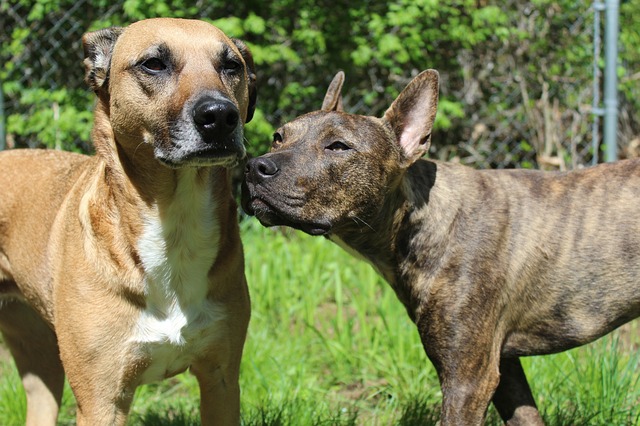Behaviorists say the most crucial time for socialization in a dog’s life is between three weeks and four months old. That’s when puppies develop their personalities, and they’re most likely to adapt to certain skills and behaviors. But what happens when a puppy is born a stray or grows up in a less-than-ideal environment?
Some of the dogs that end up in shelters never have the chance at socialization. They can grow to be fearful, timid, and wary of new things, and this can affect their chances of fitting in with a new family.
If this sounds like an adult rescue dog you recently adopted, don’t worry. It’s never too late to start socialization.

The Challenge
The difference between socializing a puppy and working with an adult dog is that with a puppy, you have a blank slate. They have no preconceived notions about what’s going on around them, and while something might be initially scary or startling, there’s nothing from their past to make them uncomfortable.
An adult dog’s life experience often works against them. They’ve most likely encountered many of the things on your socialization list already, and if it was a bad experience, you’re already a step behind. New people, vehicles, excited children—you have to work not knowing what kind of negative reinforcement they experienced in the past. Some adult rescue dogs have also grown out of that puppy stage when they’re most open to new things. They’ve grown to be wary of the world.
The Solution
The sooner you accept the fact that socializing an adult rescue dog will take longer and require more effort than it would with a puppy, the better off you’ll both be. If you expect too much too fast, you’ll only slow everything down with unneeded stress and frustration. It may take weeks to notice improvement, but these tips will help.

#1- Start at a Distance
Things are always more scary up close. If your pup is showing signs of being afraid of other dogs, start by bringing them to a spot where he can see the dogs at a distance, but there’s a fence or a lot of land separating them. Take time building his confidence from far away before gradually moving closer.
#2 – Choose a Focus
With a puppy, you could end up introducing them to several new things a week. But with an adult rescue dog, things will happen slower. Focus on one specific part of socialization at a time. If you want them to get used to cars, for example, don’t do anything else new until they’ve shown improvement with that particular hurdle.
Related: 7 Best Travel Anxiety Relief Products for Dogs

#3 – Ignore Unwanted Behavior
If your dog runs under the bed every time the vacuum comes out, ignore them. It sounds harsh, but coddling them will only reinforce their thought that the vacuum is a scary monster. Scolding and showing disapproval is also the wrong move. Your best strategy is to act like everything is normal. Leave the vacuum in the room while you do something to subtly entice your dog to come out. Pick up their favorite toy or take the treat bag out of the cabinet. When they come out, reward their bravery.
#4 – Pick Your Battles
As their new owner, you might not know what kind of past your rescue dog is dealing with. They could have been abused or neglected, and if they were at the shelter, you know they were abandoned. It’s your job as their adopter to show them a better life full of love, comfort, and a sense of security. If your dog is terrified of meeting men, there’s probably a good reason. When they cower at every big dog they see, their fear may not be as irrational as it looks.
Related: 8 Tips To Help Your Nervous Dog Relax
You want your dog to be well-equipped to face every situation they encounter, but sometimes you need to follow their lead. If they’re afraid of something, don’t force it. Play together in the backyard instead of the dog park. If they don’t like strangers, explain that to guests and ask them to leave the dog alone. You can continue to work on these issues over time, but your ultimate responsibility is to do what’s best for your dog.
 Toledo, United States.
Toledo, United States.